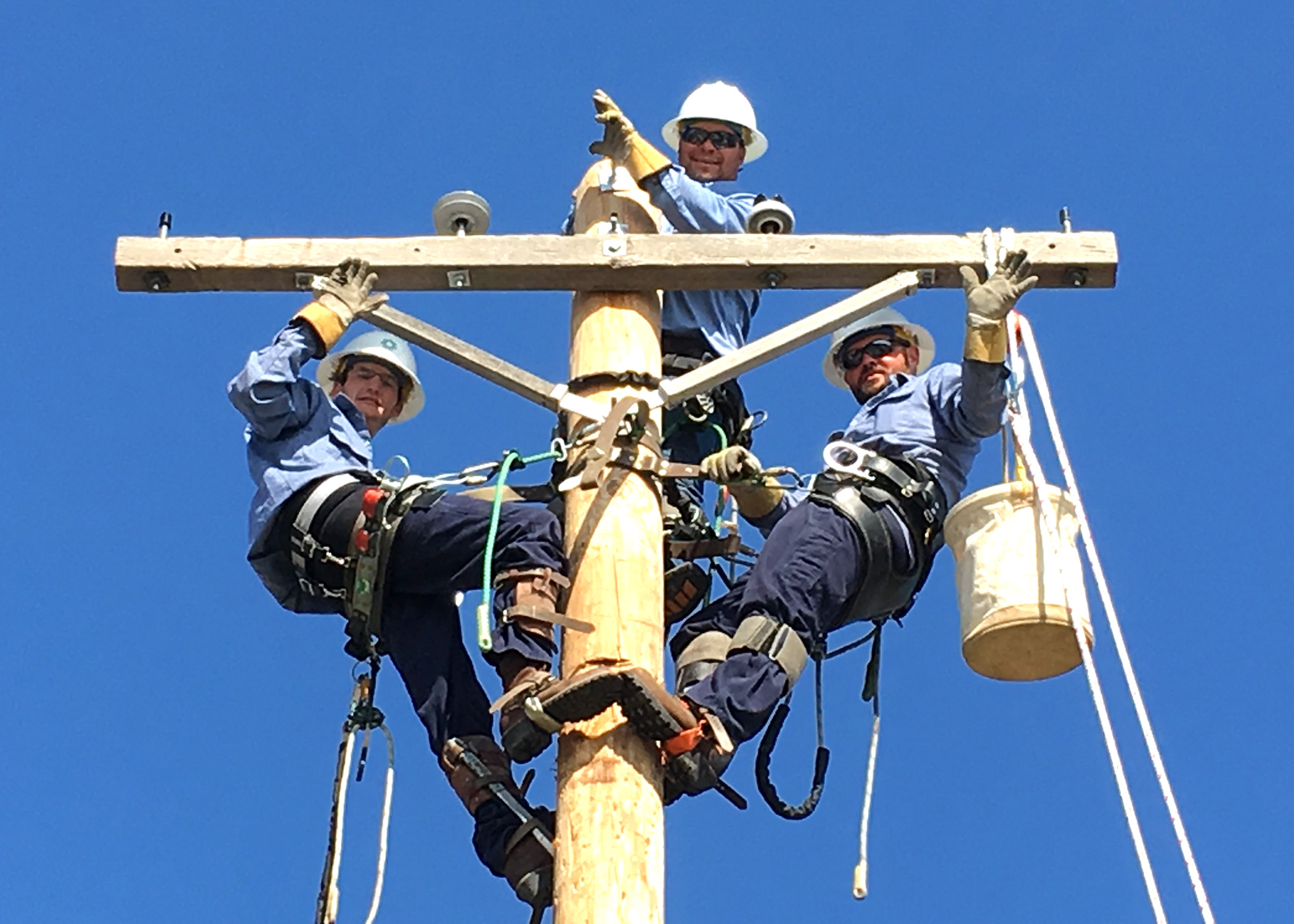Student Lineman Program Keeps Line Workers in Smallest Communities
Being an electric lineman isn’t for everyone. The long hours and working in all kinds of climate conditions scares off many. A fear of heights, since linemen often climb poles more than 40 feet high, deters others. For those who decide to pursue a lineman career, the path usually involves a technical school program, followed by a couple years of on-the-job apprenticeship training before becoming a journeyman.
Midwest Energy, however, faces a unique challenge. Most of the cities the co-op serves have populations under 5,000 and getting trained linemen to leave big city amenities for smaller locations can be difficult. 
Enter the Student Lineman Program, which takes individuals from these communities and bypasses the traditional technical school route, taking those with no prior experience and teaching them the lineman trade through a four-year, 8,000-hour program to become a Journeyman Lineman.
The co-op’s Joint Apprenticeship Committee developed and implemented the Student Lineman Program in 2016, and the program is a pre-requisite for apprenticeship if there is no previous experience or formal schooling. “The whole change allows us to better prepare our apprentice linemen to become journeyman linemen,” said Fred Taylor, Vice President of Operations.
Students in the six-month program earn a climbing certificate from Midwest Energy, after a total of 30 documented hours of climbing. Additionally, the student must complete an online driving class, acquire a Class A commercial driver’s license, pass a DOT physical and receive the associated medical card. The student must also acquire a comprehensive understanding of all applicable sections of the Midwest Energy Safety Manual as it relates to a lineman position, and complete the required seven module training program. The student is also observed working on-the-job and evaluated on skill development by his manager, line foreman, and journeyman linemen.
Midwest has had three employees go through the program, with another three currently in training. Of those six employees, two are employed in Sharon Springs, two in Hoxie, one in Lyons, and one in Great Bend. The program also allowed Midwest to retain two former meter readers with the company, when the positions were disestablished.
Jason Christiansen, Apprentice Lineman at Lyons, joined Midwest Energy as a Student Lineman in April 2018. Previously, Jason was working for Solida, Midwest Energy’s tree trimming contractor, and was approached by a Midwest Energy employee to consider the program. “The training was way more than I expected and the on-the-job training is so much better than the classroom,” said Christiansen. When asked if he had any recommendations for someone interested in the program, Jason said, “Don’t let the training and the amount of information you’re required to learn overwhelm you. It is manageable.”
Aaron Bollig, Student Lineman in Sharon Springs, previously worked for the City of Sharon Springs and had some electrical background. “The program is great because it takes someone from ground level with no background and does a good job drilling home the safety aspect. This is a hazardous job, and it’s safety first,” said Bollig.
Michael Stremel, Midwest Energy’s Training Manager, said the program helps retain people in small communities, while the co-op gains a long-term employee. “We have hired from the outside and have lost many employees over the years to other companies because they couldn’t adjust to living in a smaller community,” Stremel said, adding, “The student program also [allows us to] expose middle and high school students to careers that are available in the utility industry at job fairs we attend."
Taylor said he views the program as a success. “Based on those that have come through the program, it’s accomplishing the initial objective. This has allowed us to train local candidates who want to stay in the community and make a good living," Taylor said.